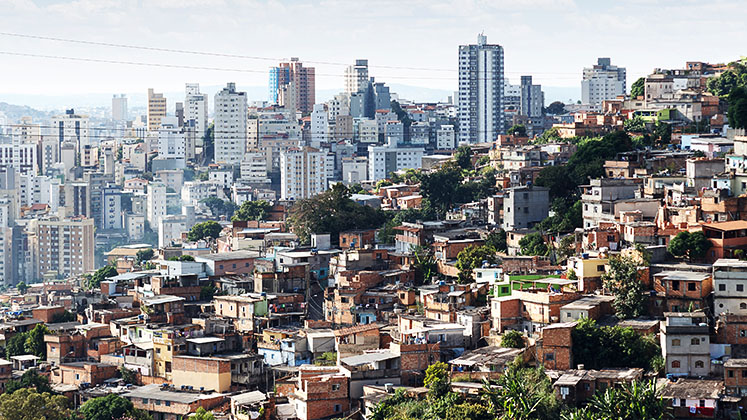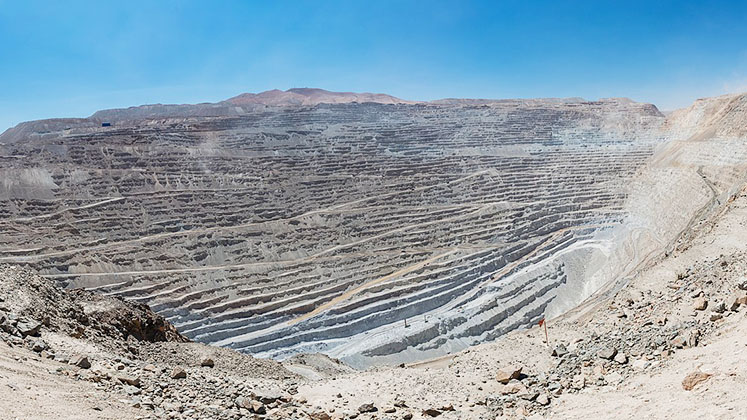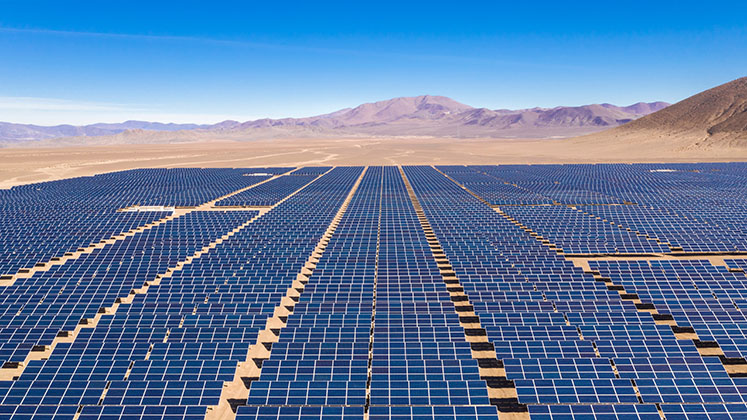The Canning House Research Forum, emerging from our partnership with Canning House, is a five-year rolling programme of research and policy engagement led by our Canning House Research Fellow Dr Amir Lebdioui.
Until 2022, Dr Lebdioui has produced two reports titled "Inequality and Trade Diversification: How can Income Inequality in Latin America be Reduced beyond Commodity Booms?" and "Latin American Trade in the Age of Climate Change: Impact, Opportunities, and policy options." In his first report, Dr Amir Lebdioui, discusses the limits of what can be achieved in terms of inequality reduction without measures to diversify away from commodity dependence. In the second one he siscusses how the region can cope with the long-term trade effects of climate change as well as exploit the potential trade opportunities that arise from the global decarbonisation agenda.
You can read the full reports here and here.
The Forum consists of a series of three individual, policy-focused research projects aiming to advance knowledge and offer insights of practical application to political, economic, social, and business policy-making. It will produce various outputs and host numerous events on the theme of The Future of Latin America and the Caribbean.
1. Inequality, export diversification, and taxation in Latin America
After a decade of falling inequality in Latin America, recent years have seen disparities widen once more, leading to waves of protest across the region. In light of this, a growing number of scholars, politicians, civil society groups, and everyday citizens are calling for a new economic model that can reduce and reverse rampant income inequality.
This project aims to examine the paths towards a sustainable and just model of development in Latin America by investigating the complex relationships between income inequality, export diversification, and taxation.
 The informal settlement of Papagaio in Belo Horizonte, Brazil (Fred Cardoso/Shutterstock)
The informal settlement of Papagaio in Belo Horizonte, Brazil (Fred Cardoso/Shutterstock)
By demonstrating the embeddedness of income inequality in the broader context of export concentration and by highlighting the role of taxation in both phenomena, this research sheds light on the need for a comprehensive, multidimensional approach to tackling inequality in the long term.
We aim to generate timely insights that will help policy-makers to generate a new economic model capable of fostering socioeconomic development and maintaining political stability.
2. Latin American Trade in the age of climate change
Commodity dependence and the vulnerability to climate change in Latin America
Latin American countries tend to rely on the exports of agro-based commodities and/or fossil fuels, which increases the vulnerability of their productive structures to climate change and its mitigation. This study will further assess the vulnerability of Latin American economies to climate change and justify the need for a process of economic diversification into new sectors and activities as swiftly as possible.
Opportunities for diversification may stem from the region’s endowment in so-called "minerals of the future". Latin America holds over half of the world reserves of lithium, for instance, which is a key component of green technologies.
This research project will investigate opportunities for and barriers to value addition in the region's lithium sector, as well as evaluating the possibility of regional cooperation to regionalise value chains around critical minerals in the context of a low carbon future.

Photo: Chuquicamata copper mine in Chile (Diego Delso, CC BY SA)
Latin America’s integration in renewable energy value chains: what opportunities exist?
A second element of the research will analyse the integration of Latin American countries within global value chains in the renewable energy sector:
• What opportunities exist for upgrading towards higher value added segments of renewable energy value chains?
• What kind of partnerships will be needed within and beyond the region?
This research is particularly important and timely given that Latin America is becoming a leading region in renewable energy deployment, with over 25 per cent of primary energy coming from renewables (twice the global average).
 Photo: Solar panels in Atacama, Chile (Abriendomundo/Shutterstock)
Photo: Solar panels in Atacama, Chile (Abriendomundo/Shutterstock)
A Latin American Green Deal?
In light of the region’s rampant inequality, there is a need for an alternative development model that can lead to the creation of decent jobs. Severe vulnerability to climate change as a result of dependence on agricultural and fossil-fuel exports also means that a Green New Deal could represent an opportunity for stimulating long-term and sustainable development in Latin America. This report therefore also assesses whether the opportunities and challenges for a Green Deal in Latin America.